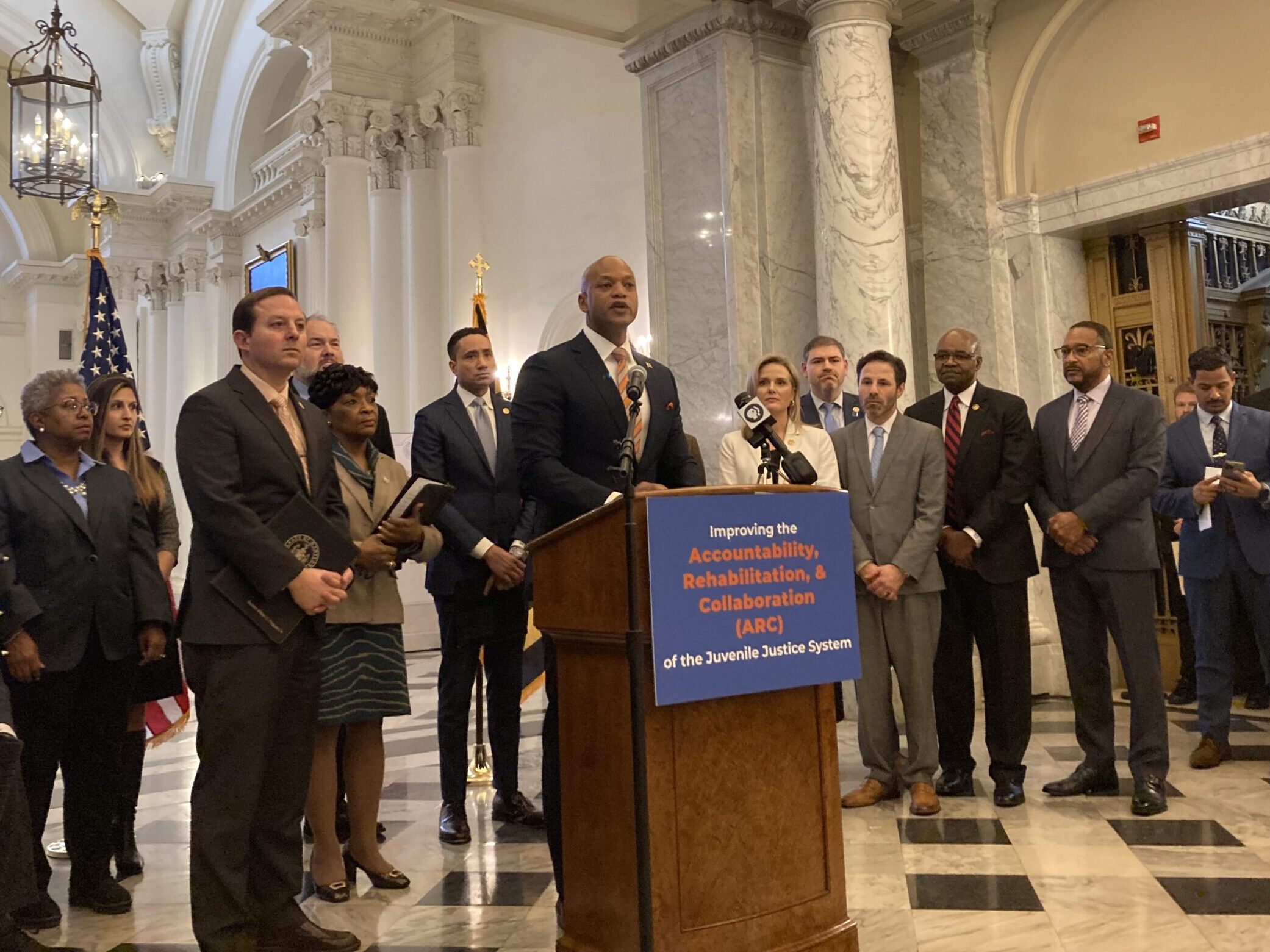ANNAPOLIS, Md.–Children as young as 10 could potentially go to court for auto thefts and handgun violations, under one proposal key Democratic lawmakers detailed on Wednesday and plan to push for in the legislature in coming weeks.
The lawmakers propose giving Juvenile Services officers the option to route a young person’s case to court if the child is 10 to 13 years of age and accused of these or other crimes – adding them to the list of serious offenses that already can land a young person before a judge.
The proposals are meant to promote collaboration and make the system work more smoothly, Democratic officials said, but youth advocates worry that they will lead to higher incarceration rates, especially of youth of color.
“Right now, juvenile offenders and the services and accountability they need are separated by an abundance of confusion,” said House Speaker Adrienne Jones, D-Baltimore County. “Egos, political agendas and arguments over process have filled the gaps.”
There must be “accountability for adults in the system, who are charged with administering the system,” said Senate President Bill Ferguson, D-Baltimore City. “We must ensure that all parts are working to their highest potential.”
Jones and Ferguson joined Democratic Gov. Wes Moore on Wednesday for a public announcement of the proposals, alongside the lawmakers who crafted them.
The raft of changes, if enacted, would toughen a reform law the state legislature passed in 2022. Among other things, that reform barred police from charging young people under 13 except when they are accused of the most serious crimes.
The newly unveiled legislative package would expand that list of serious crimes and lengthen the maximum probation period that can be ordered by a judge. It would also expand the reporting responsibilities of a state agency charged with oversight of the youth justice system.
The announcement on Wednesday gave shape to Democrats’ response to pleas for accountability amid spikes in certain youth offenses in recent years. While youth violent crime arrests fell 16.5% overall between fiscal years 2020 and 2023, according to a Juvenile Services report last year, carjackings increased by 85.4% and handgun violations rose almost 220%.
After weeks of talks with law enforcement and advocates, the set of proposals represents a general agreement among Democrats, who control both chambers of the legislature and also hold the governor’s office.
But advocates in the Maryland Youth Justice Coalition predicted in a written statement that the “legislation introduced today will see thousands more kids incarcerated every year, particularly Black and brown children, and (exacerbate) the already serious racial disparities in Maryland’s juvenile justice system.”
As the minority party, Republicans have said in recent months that the reform law leaves Marylanders less safe and also prevents young people from getting the services they need. GOP lawmakers in Annapolis have their own ideas for change, including a measure that would prohibit young people who have committed sexual offenses from attending school in person.
But one key Republican on Wednesday said the Democrats’ plan shows they are taking “first steps” in addressing flaws in the youth justice system. House Minority Leader Jason Buckel, R-Allegany, said he appreciates that Moore has put his weight behind the issue of youth crime.
“For him to be able to step in and say, ‘Hey, I’m a Democrat. I’m from Baltimore City, but I’m going to step up and say too much is too much and this is a reasonable way to deal with this’ – it’s incredibly helpful,” Buckel said.
Buckel said he also hopes Moore will be able to persuade fellow Democrats to consider other tough ideas, too.

